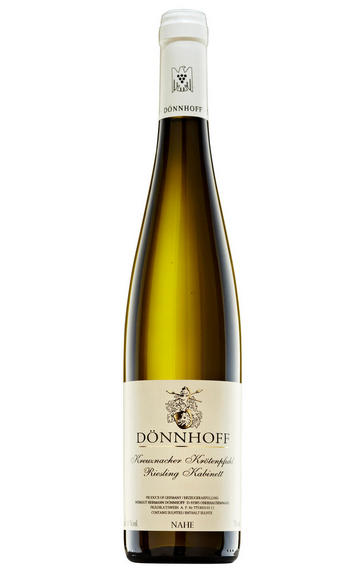
2018 Dry Riesling,Kreuznacher Kahlenberg Dönnhoff, Nahe, Germany
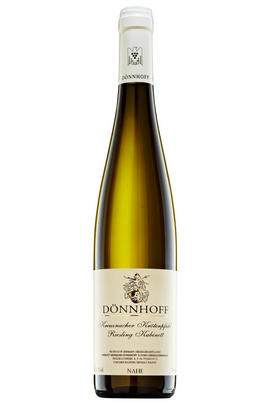
About this WINE
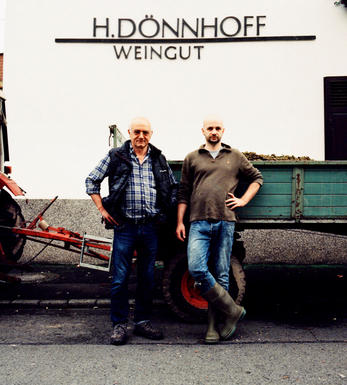
Dönnhoff
The Nahe River flows north into the Rhine at Bingen – located at the western end of the Rheingau. The best wines from the Nahe have been described as having the Rheingau’s elegance, the Rheinhessen’s body and the Mosel’s acidity.
There are several outstanding producers in the area, with the most celebrated being Helmut Dönnhoff. He produces some of Germany's finest Riesling wines from the world-famous Niederhausen and Schlossböckelheim vineyards. Several of his notable wines also come from the less-well-known Norbeim and Oberhausen vineyards.
His Kabinett and Spätlese wines are exceptionally rich with complex, with intense mineral overtones. They are delicious when young but have the potential to improve for up to 10 years, with the top wines lasting even longer.
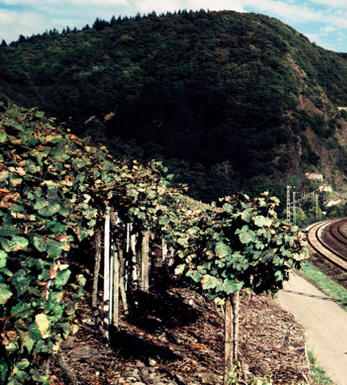
Nahe
Unlike many German regions, the Nahe’s production is focused on quality rather than quantity: 57% is QmP (equivalent of Appellation Contrôlée), 41% QbA (equivalent to Vin de Pays) and only 2% Tafelwein (Vin de Table). The climate is mild and balanced with lots of sun, moderate rainfall and very little frost; the region is also protected against cold winds by the Soonwald and Hunsrück Mountains. All this enables the grapes to have a long and dry ripening in late summer.
One of the smaller German wine regions, covering 4,300ha, Nahe’s extraordinary range of soil types is second to none. The entire rock cycle of igneous (volcanic), sedimentary (sandstone, clay, limestone) and metamorphic (slate) rocks can be found here. For this reason, the region is able to produce quite diverse wines from relatively few grape varieties: Riesling wines of great finesse and a light spiciness, fragrant Müller-Thurgau with floral hints and full-bodied and earthy Silvaner. The most important districts are around Schloss Böckelheim in the upper-middle Nahe, and Bad Kreuznach in the Lower Nahe. However the Rhenish slate at Bretzenheim and volcanic soils around Monzingen and Merxheim that yield fresh, steely Rieslings can also be very good.
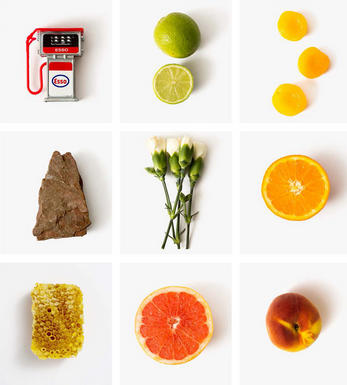
Riesling
Riesling's twin peaks are its intense perfume and its piercing crisp acidity which it manages to retain even at high ripeness levels.
In Germany, Riesling constitutes around 20% of total plantings, yet it is responsible for all its greatest wines. It is planted widely on well-drained, south-facing slate-rich slopes, with the greatest wines coming from the best slopes in the best villages. It produces delicate, racy, nervy and stylish wines that cover a wide spectrum of flavours from steely and bone dry with beautifully scented fruits of apples,apricots, and sometimes peaches, through to the exotically sweet flavours of the great sweet wines.
It is also an important variety in Alsace where it produces slightly earthier, weightier and fuller wines than in Germany. The dry Rieslings can be austere and steely with hints of honey while the Vendages Tardives and Sélection de Grains Nobles are some of the greatest sweet wines in the world.
It is thanks to the New World that Riesling is enjoying a marked renaissance. In Australia the grape has developed a formidable reputation, delivering lime-sherbet fireworks amid the continental climate of Clare Valley an hour's drive north of Adelaide, while Barossa's Eden Valley is cooler still, producing restrained stony lime examples from the elevated granitic landscape; Tasmania is fast becoming their third Riesling mine, combining cool temperatures with high UV levels to deliver stunning prototypes.
New Zealand shares a similar climate, with Riesling and Pinot Gris neck to neck in their bid to be the next big thing after Sauvignon Blanc; perfectly suited is the South Island's Central Otago, with its granitic soils and continental climate, and the pebbly Brightwater area near Nelson. While Australia's Rieslings tend to be full-bodied & dry, the Kiwis are more inclined to be lighter bodied, more ethereal and sometimes off-dry; Alsace plays Mosel if you like.


Buying options
Add to wishlist
wine at a glance
Delivery and quality guarantee